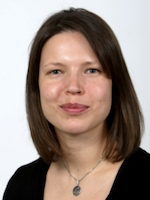RISKMETER
Explore the risks to public health, safety, built and natural environment posed by electricity supply
Story
All electricity supply technologies carry various risks to public health, safety, natural and built environment. Examples of these risks are climate change, ecosystem damages, industrial accidents, induced earthquakes, and many others.
Scientific inquiry and wider energy debates often revolve around individual technologies. But for many countries supplying the electricity demand always needs a portfolio of several technologies. Thus, there is no zero-risk future. If one technology is excluded, it needs to be replaced with another one.
The RISKMETER helps you explore alternative electricity portfolios for 2035 and their risks to public health, safety, natural and built environment. It also helps us understand your preferences and reasoning on how the future electricity supply should look like.
Aim
Learn
Learn about electricity supply technologies and their risks to public health, safety, natural and built environment.
Explore
Explore risk trade-offs, when several technologies are combined into a portfolio to meet the electricity demand.
Choose
Choose your preferred electricity portfolio for 2035 and tell us how it looks.
Project
The RISKMETER was part of the Ambizione Energy research project "RIsk GOveRnance of electricity pOrtfolioS (RIGOROuS): Cross-technology and spatial tradeoffs of multiple risks." The development of the RISKMETER was funded by the University of Geneva and the Swiss National Science Foundation for the period of 2015-2018 (Grant No. 160563). You can find more information here.
Team
The RISKMETER team is based at the University of Geneva, Renewable Energy Systems group at the Faculty of Science, Department F.-A. Forel for Environmental and Aquatic Sciences and Institute for Environmental Sciences.

George Xexakis is the scientific assistant that develops the RISKMETER. He holds a Master of Science degree in Building Engineering from TU Delft in the Netherlands.

Prof. Evelina Trutnevyte is the project leader. She holds a Doctoral degree from ETH Zurich, Department of Environmental Systems Science.
Sandra Volken, Franziska Ruef and Theresa Knoblauch have contributed substantially to the development of the RISKMETER.